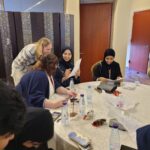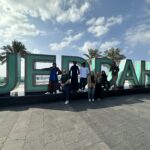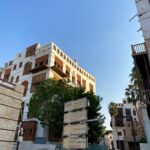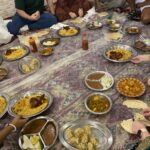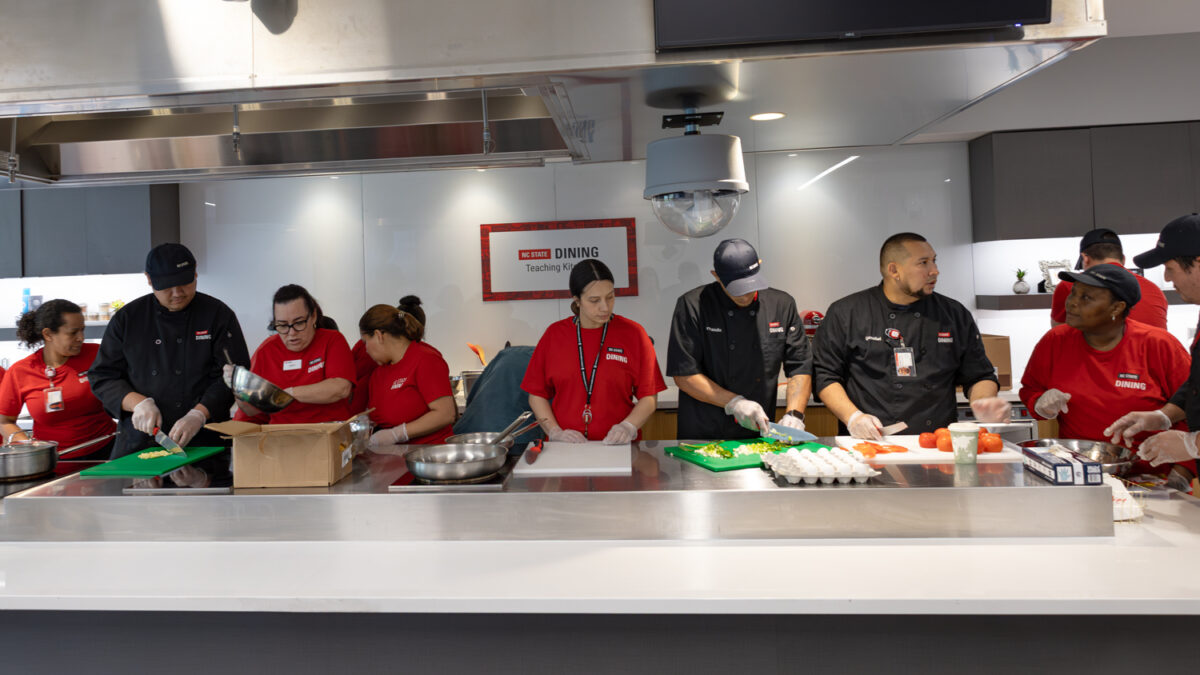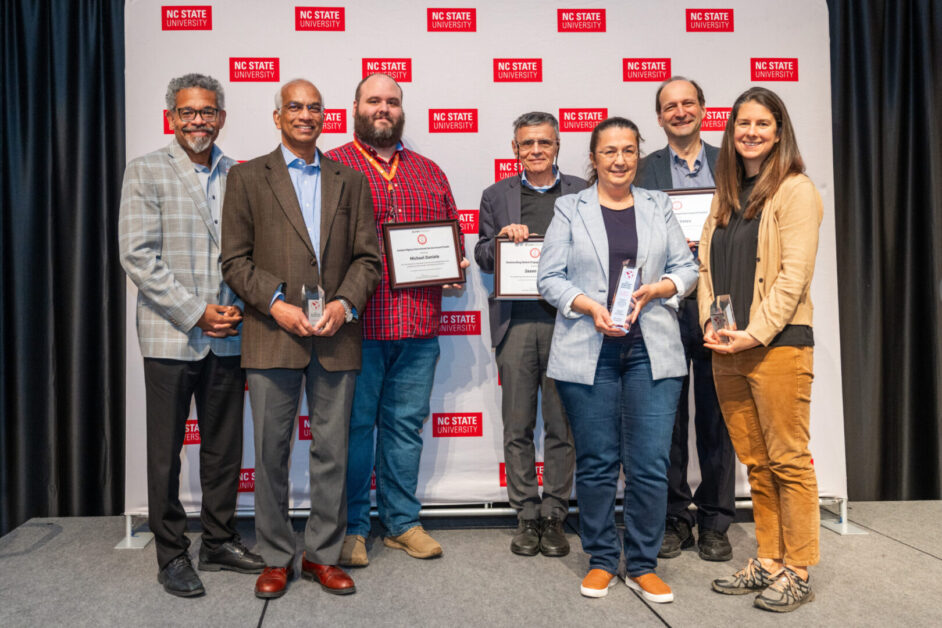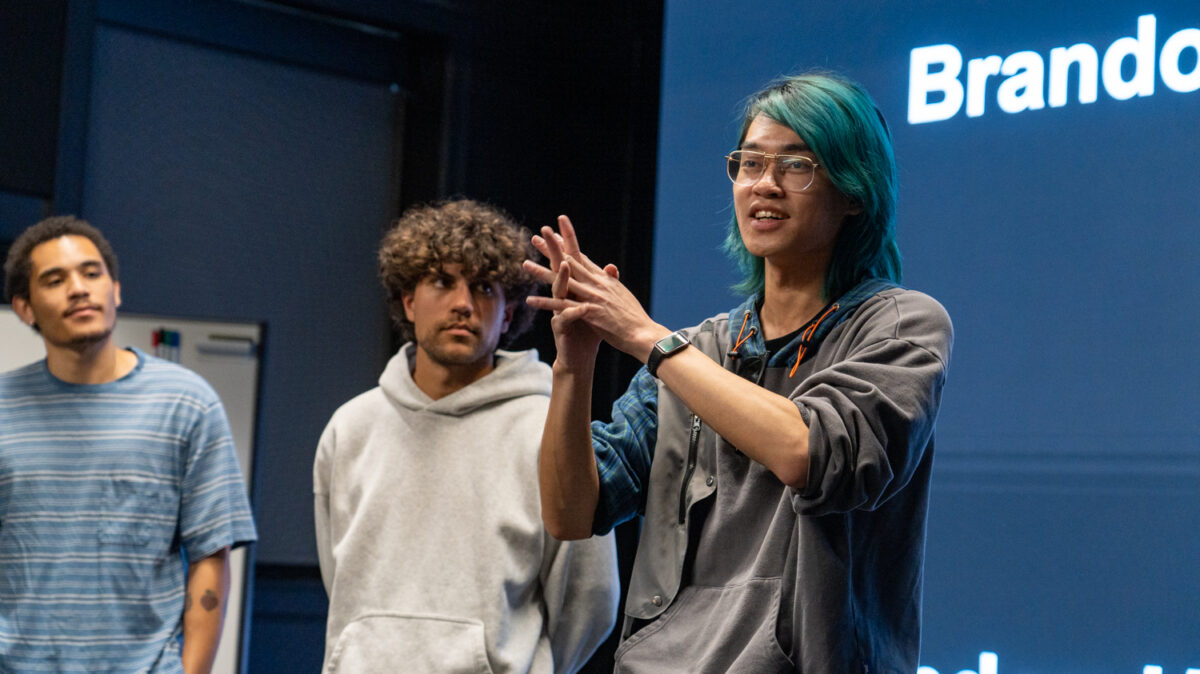Winter Break in a Saudi Desert
A handful of NC State students spent part of their winter break in the deserts of Saudi Arabia: riding ATVs across sand dunes, hanging out and eating in tents, playing games with shells then singing karaoke together. For all of them, this day in the desert was the highlight of their weeklong program.
“It felt like we were just hanging out with friends,” said Savanna Kashnig, a senior studying mathematics and international studies. “We were laughing and talking about the same movies, TV shows, and music. It was just a lot of fun to connect with them.”







The weeklong trip to Saudi Arabia was the second part of a cross-cultural exchange program coordinated by the NC State’s Global Training Initiative and King Abdulaziz University (KAU) and funded by the U.S. Consulate’s Public Affairs Section in Jeddah. A group of 12 KAU students, faculty and administrators had previously visited NC State in March with the aim of deepening academic and cultural ties. In December, two GTI staff and six students traveled to the KAU campus in Saudi Arabia where they participated in academic workshops and cultural excursions.
“I never thought I would have the opportunity to go to the region,” said Caroline Gall, a sophomore studying computer science. “I had just met some Fulbright scholars the GTI was hosting from Egypt, and they told me I definitely needed to go and see how amazing it was for myself.”
The NC State students had a chance to prepare for the trip by meeting with students from Saudi Arabia who provided helpful information about what to expect and what to buy. Gall’s mother had also found a travel book about the country from a used bookstore, which she read before the trip.
“What I knew about Saudi Arabia before the trip was only based on what I saw in the news, which is a lot more negative than what the people in that country are actually like,” Kashnig added. “So to actually meet people from that country and even visit there, if you can, really helps to create a more accurate description of the place and the people.”
Overcoming negative cultural perceptions and barriers was one of the main objectives of the cultural exchange program, which was purposefully designed to include male and female students from both universities.
“We intentionally included stereotypes and misconceptions in our examination of the cultural differences between the U.S. and Saudi to help students understand some of the barriers to building deep connections,” explained GTI Program Coordinator Becky Cibulskis. “These cultural skills are helpful for the students to be able to communicate, work, study and live in multicultural and global settings when they graduate.”
The U.S. Consulate General’s office in Jeddah, Saudi Arabia was happy to support this kind of program because their goal is to engage rising leaders through academic, cultural and professional exchanges.


“As part of America’s larger story of respect for and interest in all cultures and faiths, a range of U.S. government programs exist to encourage mutual understanding,” said Zinna Senbetta, the press attaché for the consulate general.
For Krish Patel, a freshman studying computer science at NC State, the trip highlighted many cultural differences as well as similarities.
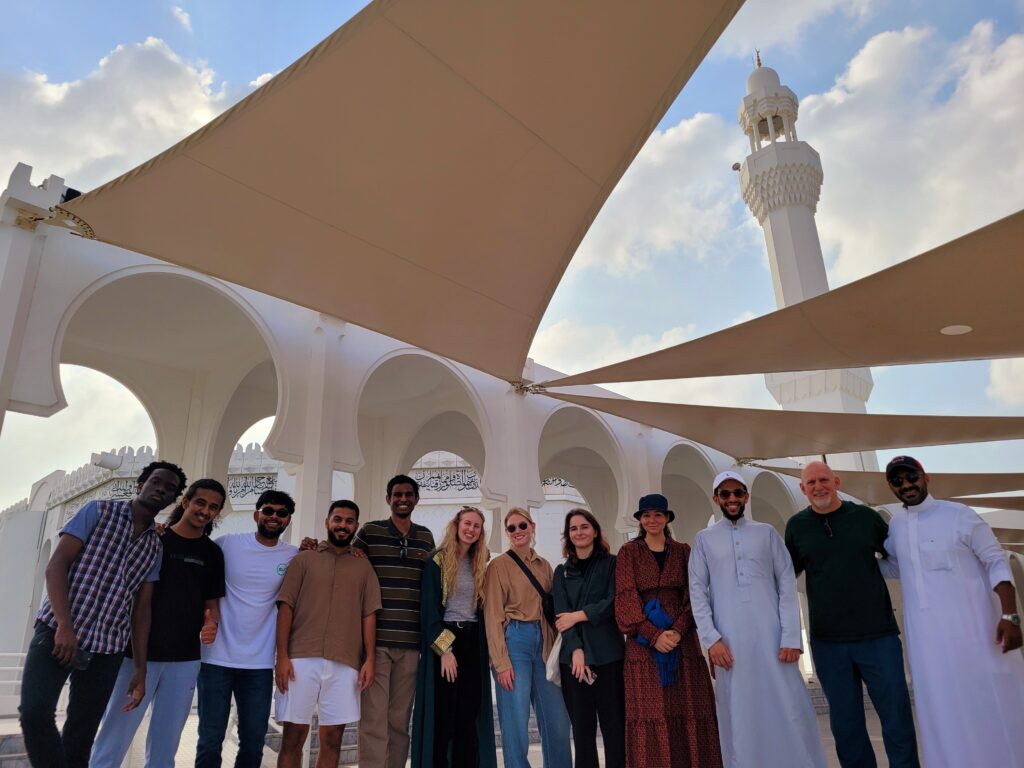
“I saw how embedded religion was a part of the culture whereas it’s not as visible here in the U.S.,” he explained. “But our work ethic and the quest for finding better opportunities are the same. There was a huge entrepreneurship and tech scene that’s the same as what we have here in Raleigh.”
Sebine Jacobson, a sophomore studying computer science, made long-lasting connections with many of the female KAU students she met during her time there and still talks to them regularly. She was very appreciative of the kindness and generosity of everyone she met there.
“I expected them to be welcoming, but it was on such a greater level,” she said. “They gave us so much food!”
The personal and cultural exchanges among the students from NC State and KAU left a deep impression on all the students.
“Being in Saudi Arabia made me realize that the way you see things is based on the way you were raised, who you’ve grown up around and the experiences you’ve had,” Kashnig added. “Their way of life was normal to them even though it was so different to me. So be open to the idea that other people were raised in different ways and that’s their culture. It’s really interesting to learn about and they have a lot to bring to the community.”
